44 Xenophon Quotes About Leadership & Wisdom
Xenophon was a Greek historian, philosopher, mercenary, and a disciple of Socrates. He is known for recording historical data during 5th and 4th century BC. He documented historical facts of his era. Xenophon’s most popular work has to be Hellenica which covered the continuation of the history of Peloponnecian war. His other works include Anabasis, Cyropaedia and Agesilaus. His work in Anabasis describes the proximity of Xenophon and Socrates. Even though he was born in Athens, he was closely associated with the arch rival city-state of Sparta. Along with his prolific work as a historian, Xenophon had major interest in politics. Even though there is no clear evidence about his opposition to democracy, he preferred aristocracy over it. His work ‘Cyropaedia’ clearly supports pro-oligarchic polity. This documentation also expresses his high regards for the first Persian emperor Cyrus the Great. He believed that it was the virtue and leadership qualities of the man which held the vast Persian Empire together. This was the main reason why he was accused of treason and subjected to exile by the Athenians. We have collected his quotes and thoughts from his books, and observations about politics, society etc. Let us go through these quotes from the great Greek historian.
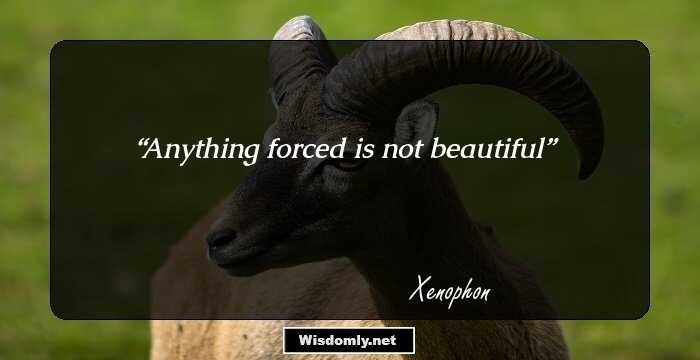
Anything forced is not beautiful
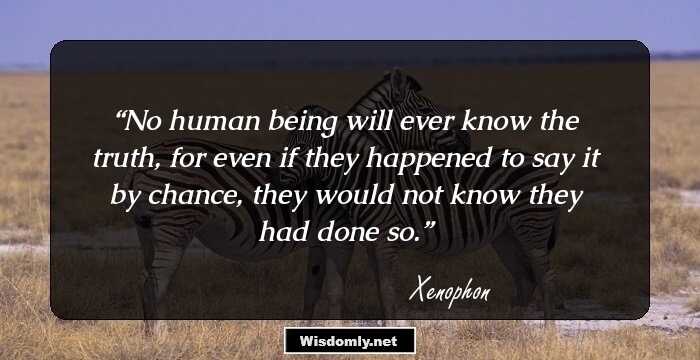
No human being will ever know the truth, for even if they happened to say it by chance, they would not know they had done so.
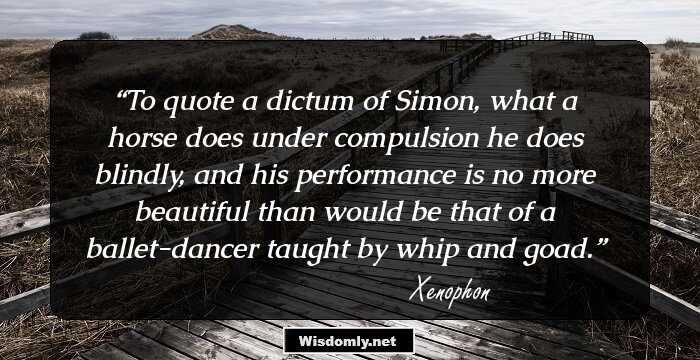
To quote a dictum of Simon, what a horse does under compulsion he does blindly, and his performance is no more beautiful than would be that of a ballet-dancer taught by whip and goad.

If you consider what are called the virtues in mankind, you will find their growth is assisted by education and cultivation.
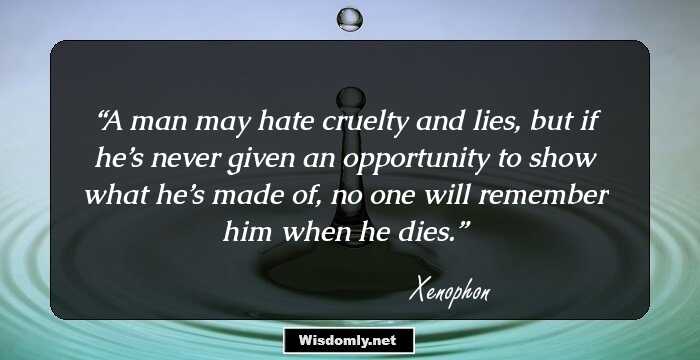
A man may hate cruelty and lies, but if he’s never given an opportunity to show what he’s made of, no one will remember him when he dies.

Moderation in all things healthful; total abstinence from all things harmful.
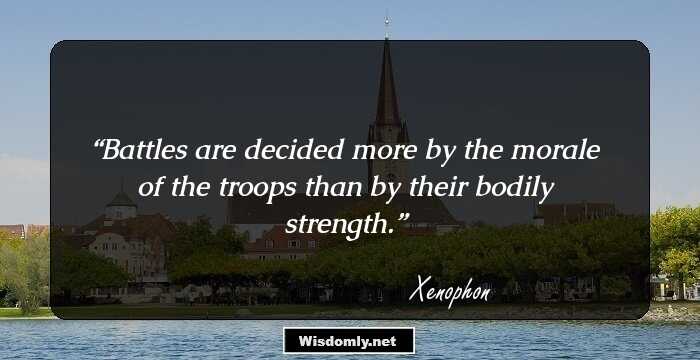
Battles are decided more by the morale of the troops than by their bodily strength.

What am I lying here for?...We are lying here as though we had a chance of enjoying a quiet time...Am I waiting until I become a little older?
For drink, there was beer which was very strong when not mingled with water, but was agreeable to those who were used to it. They drank this with a reed, out of the vessel that held the beer, upon which they saw the barley swim.
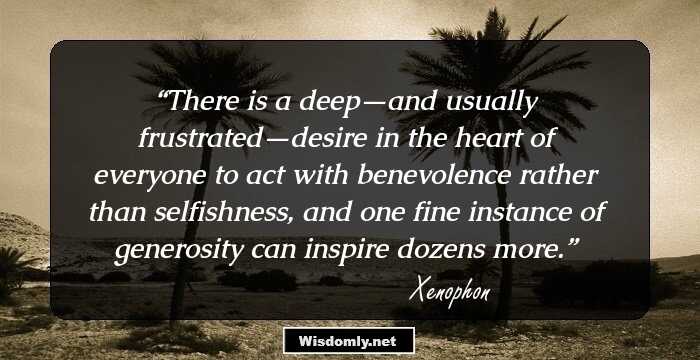
There is a deep—and usually frustrated—desire in the heart of everyone to act with benevolence rather than selfishness, and one fine instance of generosity can inspire dozens more.

People often say what is right and do what is wrong; but nobody can be in the wrong if he is doing what is right.

When a horse wants to display himself...he lifts his neck up high and flexes his poll haughtily, and picks his legs up freely, and keeps his tail up.
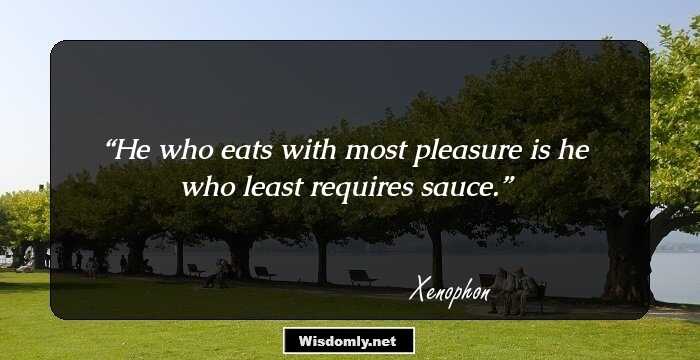
He who eats with most pleasure is he who least requires sauce.

I will venture to maintain that where the teacher is not pleasing to the pupil, there is no education.
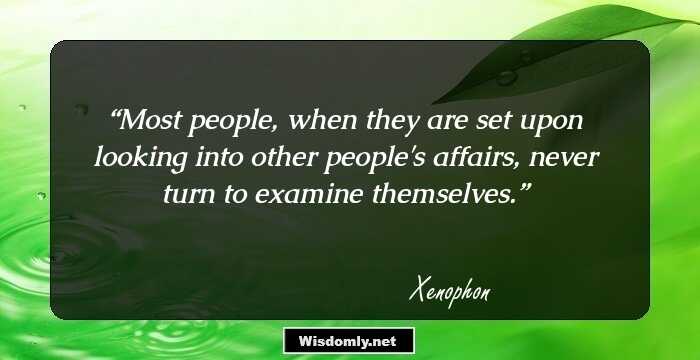
Most people, when they are set upon looking into other people's affairs, never turn to examine themselves.
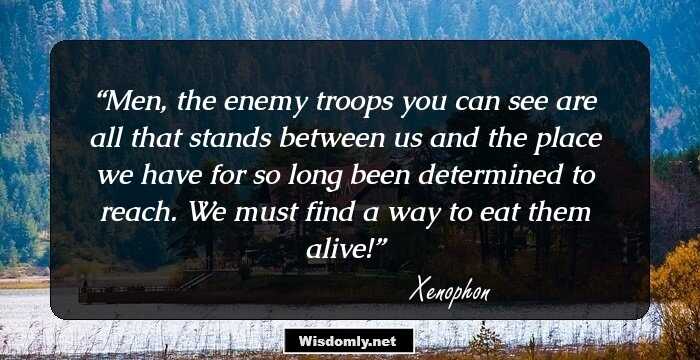
Men, the enemy troops you can see are all that stands between us and the place we have for so long been determined to reach. We must find a way to eat them alive!
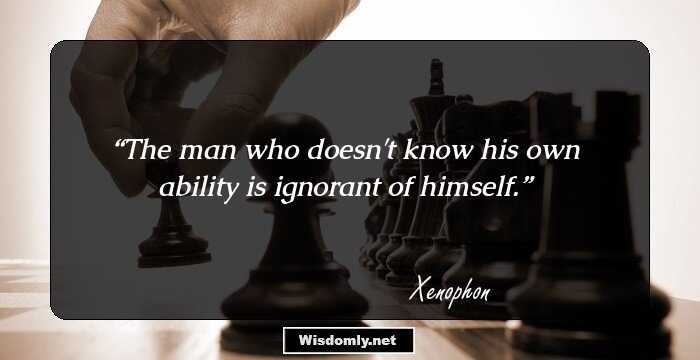
The man who doesn't know his own ability is ignorant of himself.
Socrates gave a lifetime to the outpouring of his substance in the shape of the greatest benefits bestowed on all who cared to receive them. In other words, he made those who lived in his society better men and sent them on their way rejoicing.
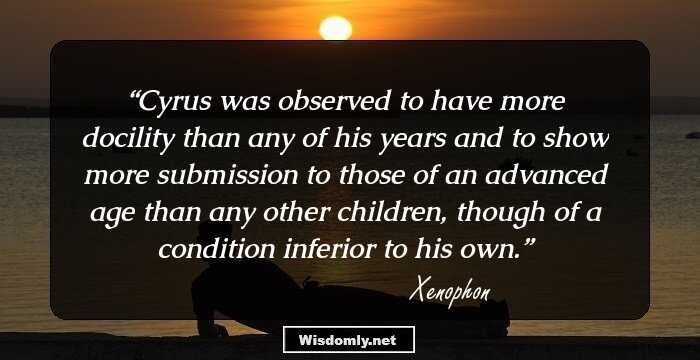
Cyrus was observed to have more docility than any of his years and to show more submission to those of an advanced age than any other children, though of a condition inferior to his own.
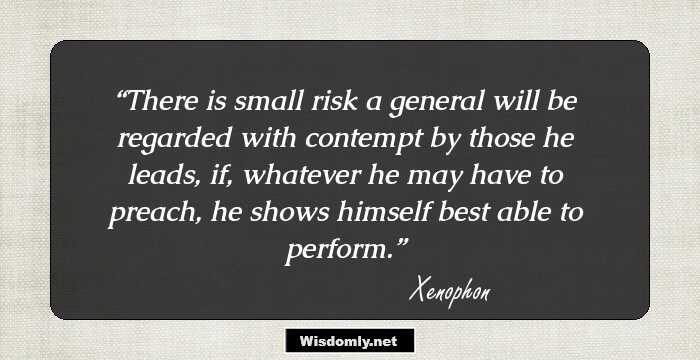
There is small risk a general will be regarded with contempt by those he leads, if, whatever he may have to preach, he shows himself best able to perform.
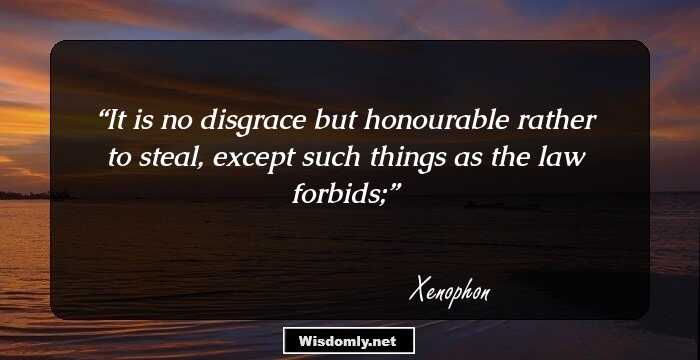
It is no disgrace but honourable rather to steal, except such things as the law forbids;
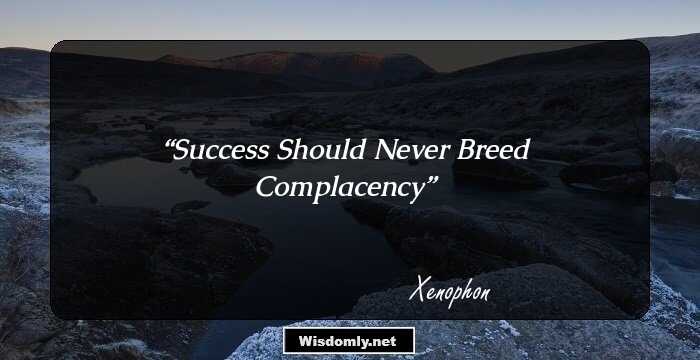
Success Should Never Breed Complacency

Whatever you determine to be right, with diligence endeavour to perform.

I am a stranger in all countries.
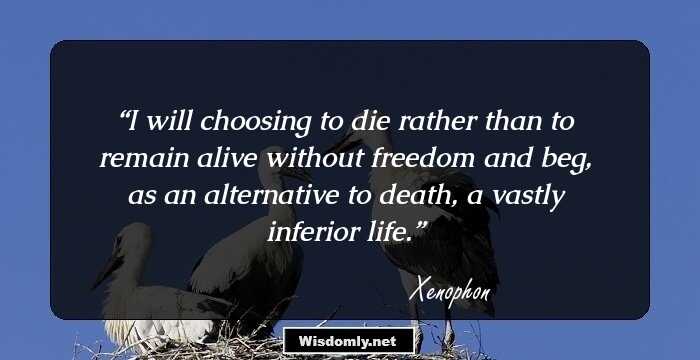
I will choosing to die rather than to remain alive without freedom and beg, as an alternative to death, a vastly inferior life.
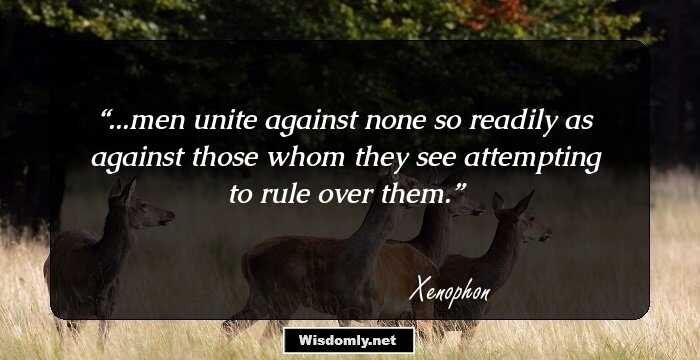
...men unite against none so readily as against those whom they see attempting to rule over them.
Menon the Thessalian did not either conceal his immoderate desire of riches or his desire of commanding, in order to increase them, or of being esteemed for the same reason. He desired to be well with those in power, that his injustice might escape punishment.
The true test of a leader is whether his followers will adhere to his cause from their own volition, enduring the most arduous hardships without being forced to do so, and remaining steadfast in the moments of greatest peril.
Those men who, in war, seek to preserve their lives at any rate commonly die with shame and ignominy, while those who look upon death as common to all, and unavoidable, and are only solicitous to die with honour, oftener arrive at old age and, while they live, live happier.
A Persian army being then subject to great inconveniences, for their horses are tied and generally shackled to prevent them from running away, and if an alarm happens, a Persian has the housing to fix, his horse to bridle, and his corslet to put on before he can mount.










